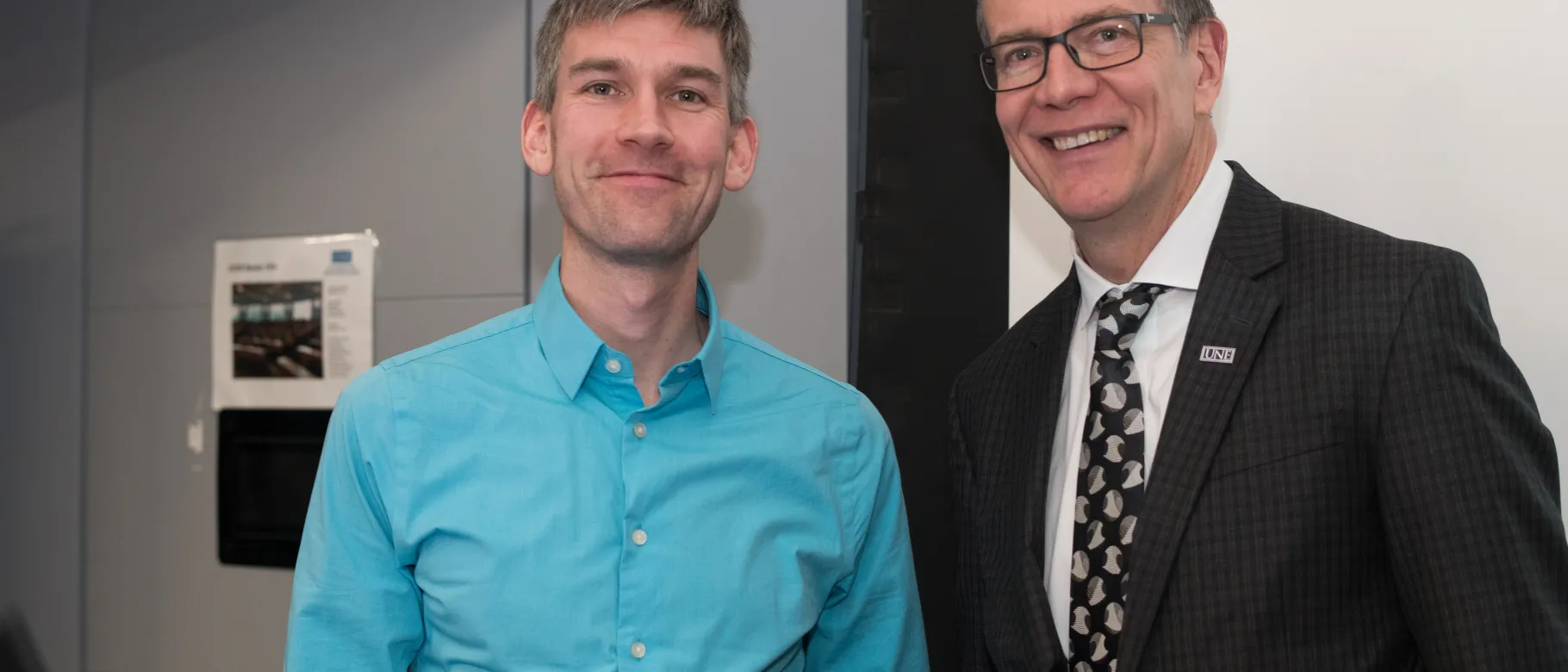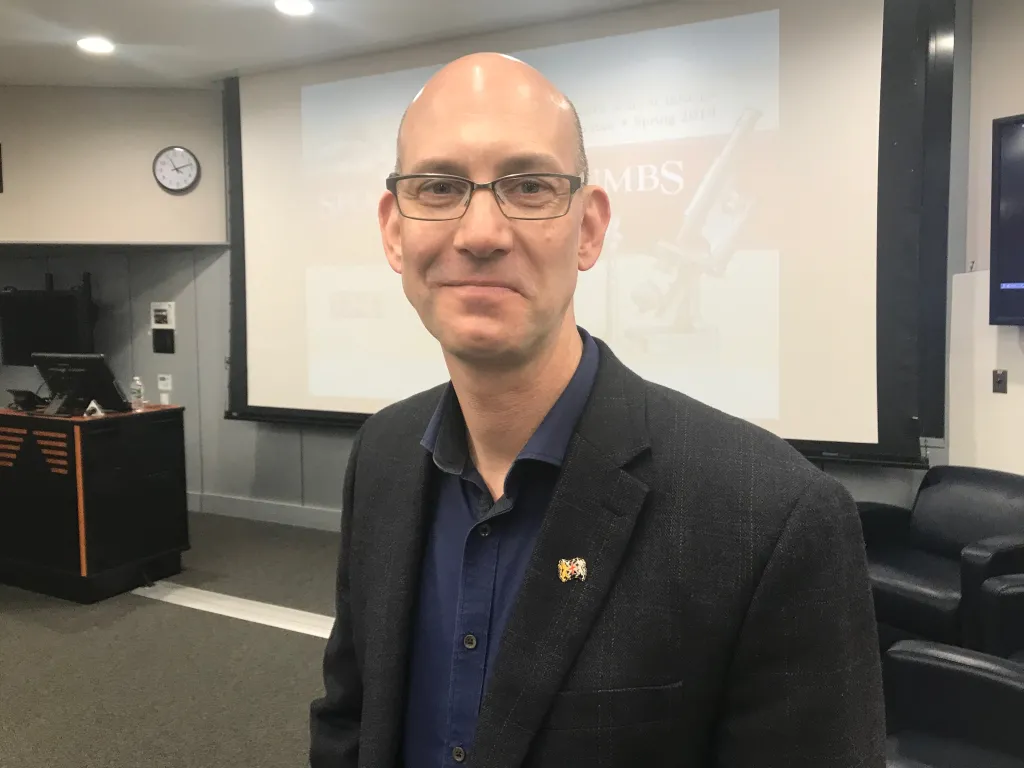Connections Lecture Series breaks down education boundaries

New York Times best-selling author Sam Kean writes books as a way to popularize science.
“Stories are a good way to teach science,” Kean recently told a packed house in the Alfond Center for Health Sciences. “People remember stories.”
Kean’s books explore the most astounding patients in neuroscience history, the hidden stories buried in our genes and DNA and the wonders of the periodic table. His talk was part of UNE’s Connections Lecture Series.
“The Connection Lecture Series is about highlighting the idea that knowledge doesn't stop at department doors and it doesn't stop at disciplinary boundaries,” explained Connections Series committee chair Eric G. E. Zuelow, Ph.D., chair of the Department of History and Philosophy, and professor of European history. “We're interested in speakers who, in one way or another, cross over what we often think of as the boundaries of knowledge.”
Kean discussed his books Caesar’s Last Breath, The Dueling Neurosurgeons, The Disappearing Spoon and The Violinist’s Thumb. In all of them, he weaves science together with history and culture.
“Sam Kean’s work looks at science from a variety of different angles, particularly historical,” commented Zuelow. “Everything has a history and by understanding that history, we often get a better understanding of how and why we think about things the way that we do today. History allows us to better understand ourselves. It is as much about the present as the past.”
A major focus at UNE is interdisciplinary education, helping students understand how other disciplines cross over into their own field of study.
“We want students to realize that being a biology major, for example, doesn't necessarily mean that history, or philosophy, or chemistry or any of these other disciplines might not in some way become immensely relevant to them,” said Zuelow.
Two speakers are invited each year to take part in the lecture series. They also spend time with students in at least two classrooms and participate in a panel discussion with UNE faculty members.
Moving forward, Zuelow says he will continue to look for speakers who stretch educational boundaries.
“The world is a big complicated place,” he said. “If a person looks at it through a slightly different lens, in a little different way, and is willing to be creative, boy, the results can be astonishing.”

